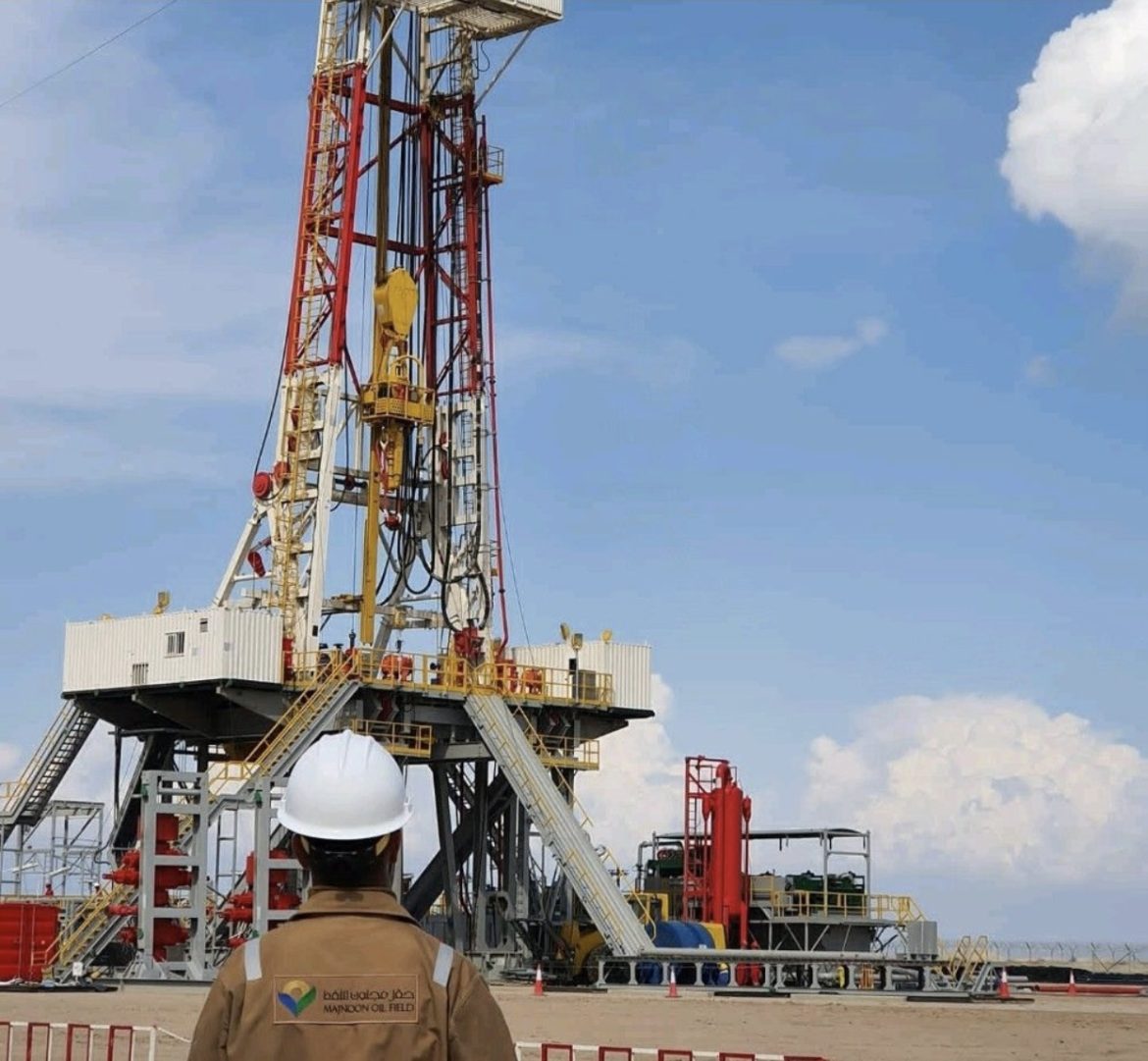KEY POINTS
- ExxonMobil returns to Iraq with a new agreement to help develop the giant Majnoon oilfield and expand export infrastructure.
- The deal includes profit-sharing, export upgrades, and plans for SOMO to secure storage in Asia.
- Iraq aims to raise oil production to over 6 million barrels per day by 2029, part of its wider push to modernise the energy sector.
Iraq has signed a new agreement with ExxonMobil to assist in developing the vast Majnoon oilfield in the country’s south and upgrade export infrastructure, marking the American supermajor’s return after a two-year absence.
Government officials confirmed the deal on Wednesday, describing it as part of Baghdad’s strategy to accelerate oil and gas output and strengthen ties with international companies after a period of limited foreign participation.
The non-binding agreement with ExxonMobil comes on the heels of similar partnerships with Chevron, BP and TotalEnergies, as Iraq seeks to attract investment through more competitive terms. The United States-based firm, which was one of the first Western players to re-enter Iraq after 2003, had previously exited the West Qurna 1 project citing low returns.
Iraq, which holds some of the world’s largest oil and gas reserves, currently produces around 4 million barrels per day and plans to exceed 6 million barrels per day by the end of the decade. However, the country’s progress has been slowed by political instability, bureaucracy, and ageing infrastructure.
ExxonMobil Returns to Iraq with Strategic Partnership
Majnoon, located roughly 60 kilometres north of Basra, holds an estimated 38 billion barrels of oil in place, making it one of the largest fields globally. The deal is seen as a sign of Baghdad’s intent to modernise its energy sector while improving diplomatic relations with Washington.
“The agreement carries significant political and commercial weight,” said Muwafaq Abbas, a former operations manager at Basra Oil Company. “It signals Iraq’s desire to rebalance its regional partnerships and deepen integration with Western markets.”
According to officials familiar with the discussions, the deal includes a profit-sharing arrangement covering both crude oil and refined products, as well as plans to upgrade southern export facilities. Iraq’s state-run marketer, SOMO, is also preparing to sign a separate agreement with ExxonMobil to secure storage capacity in Asia, potentially in Singapore.
Exxon confirmed the signing of a Heads of Agreement with the Iraqi Oil Ministry to “evaluate exploration, development and marketing opportunities” in the country.
The move marks a broader turning point in Iraq’s oil ambitions. After years of underinvestment and conflict, the government is attempting to stabilise production and attract capital to rebuild vital infrastructure.
Baghdad recently reached a deal with the Kurdistan Regional Government and international oil companies to resume crude exports through Turkey, which had been halted since 2023. The resumption could restore as much as 230,000 barrels a day to the global market, bolstering Iraq’s revenues as OPEC+ members adjust production to defend market share.
Analysts say ExxonMobil’s return could also help restore investor confidence and bring much-needed technical expertise to Iraq’s southern oilfields. But success will depend on whether the government can maintain stability and deliver on its promises of reform.
“This is a strategic re-entry for ExxonMobil and a moment of opportunity for Iraq,” Abbas said. “If managed well, it could pave the way for a new era of energy cooperation and sustainable growth.”



